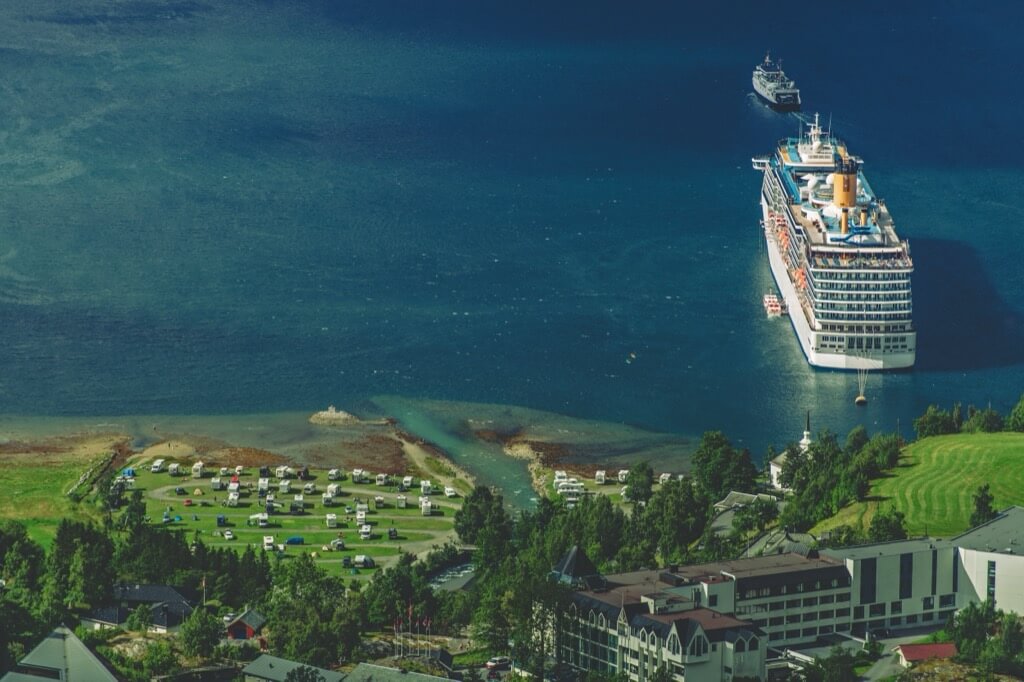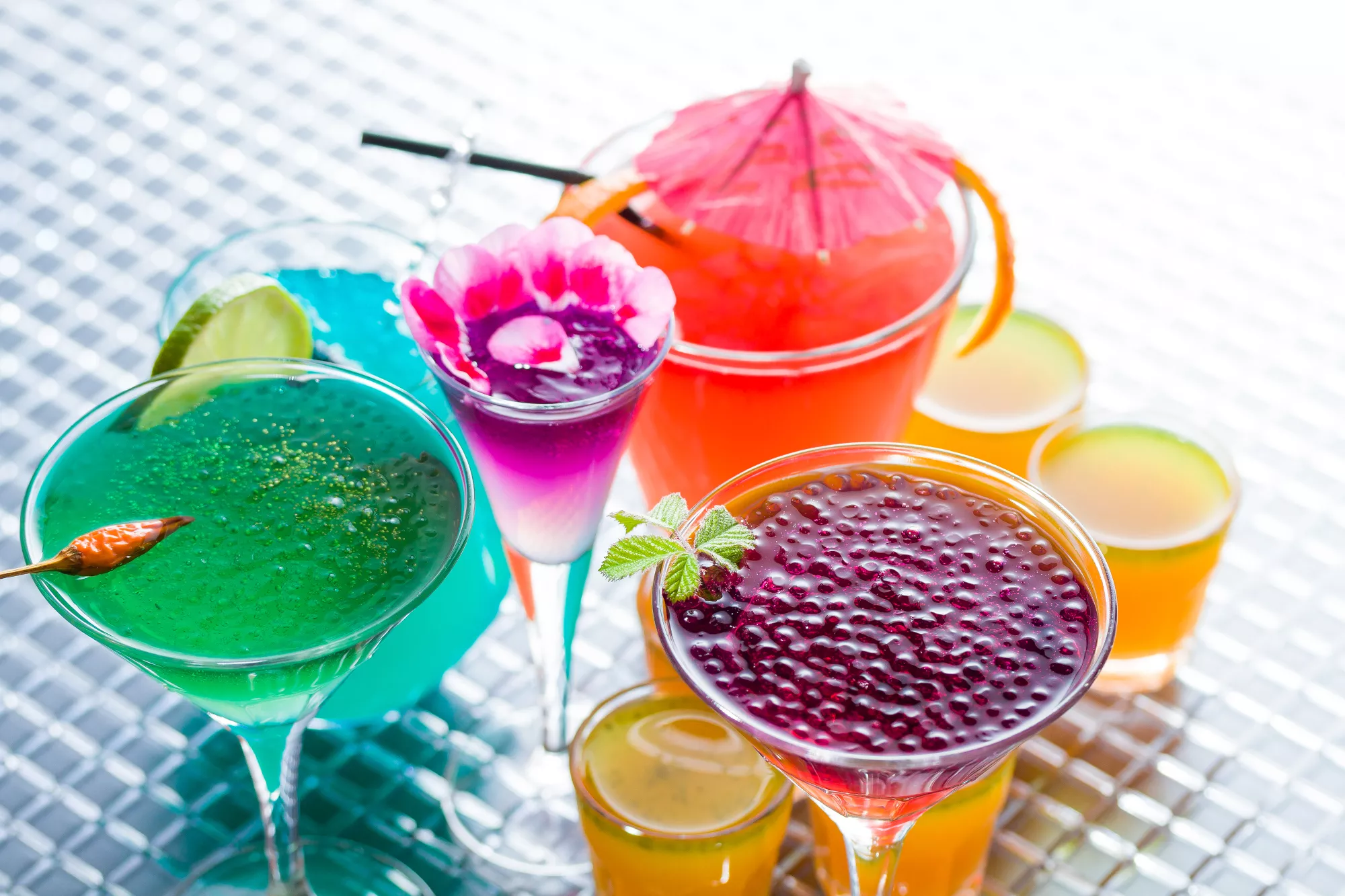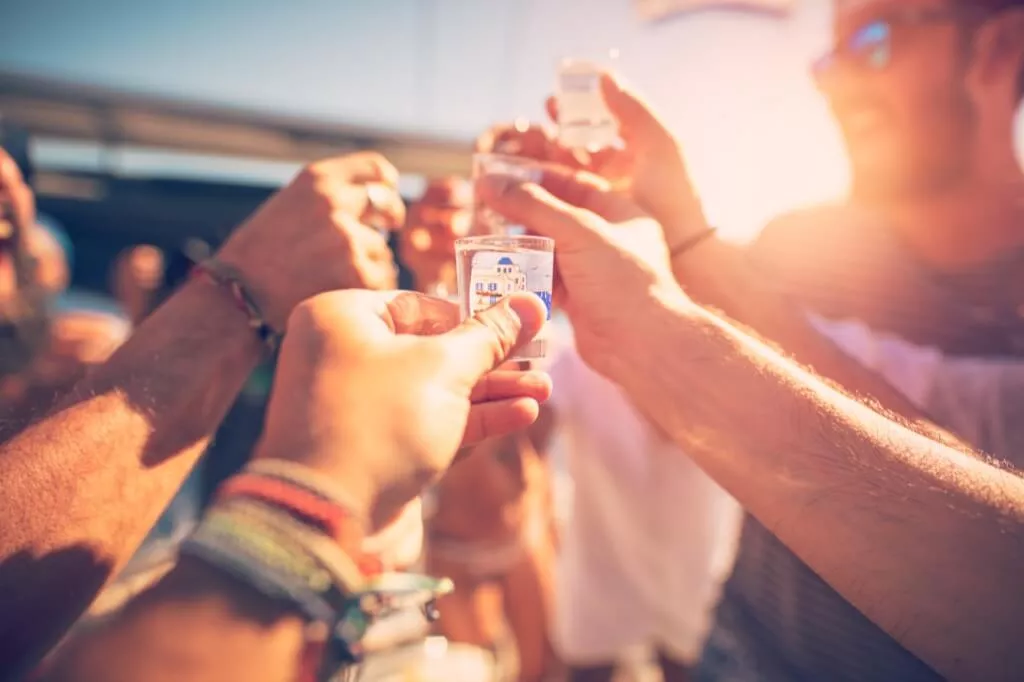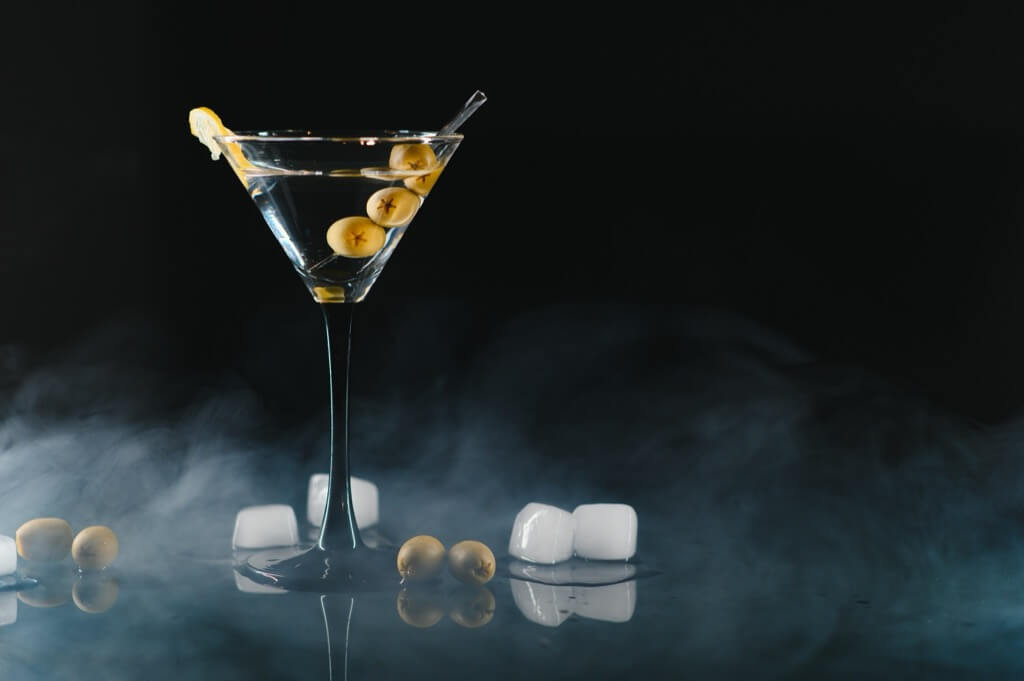Imagine your cocktail containing ingredients that were grown just a few miles away from the port you just visited. By sourcing locally, the cruise line reduces carbon emissions associated with transporting ingredients from far-off places. Plus, you get a taste that’s fresh, authentic, and resonant with the place you’re exploring.
Innovative Ingredient Use
One might wonder, what goes into a sustainable cocktail? The answer lies in the art of resourcefulness. Ingredients that once found their way to waste bins are now reimagined. Watermelon rinds, banana peels, and spent coffee grounds morph into flavorful syrups. In a twist that could rival any plot, almond croissants that lost their aesthetic appeal were reincarnated into a delectable syrup base for the crowd-favorite, Croissant Mai Tai.
These recycling methods not only pave the way for inventive drink concoctions but also bring financial prudence. The reuse strategy has curtailed the need to buy certain products, optimizing both costs and storage space.
Biodegradable Straws and Sustainable Garnishes
Plastic straws? They’re history. Your drink will be adorned with a biodegradable straw, ensuring that marine life remains unaffected. Additionally, garnishes aren’t just plucked out of thin air. They are chosen based on seasonality and availability, ensuring minimal strain on natural resources.
Rethinking Water Usage
Water is the soul of any cocktail. By implementing water-saving techniques and ensuring every drop counts, the cruise line ensures that the most crucial ingredient in your drink is sourced responsibly.
Sourcing Matters
Transparency is the name of the game at Metropolitan Bar. Every cocktail is paired with a detailed ingredient description, ensuring patrons are well-informed. And it’s not just about reusing ingredients; it’s about sourcing them right. For instance, NCL brings to its patrons sustainable rum from Flor De Caña, a brand that boasts of 100% renewable energy in its production process. A rum that has seen the legacy of a family distillery since the 1890s, Flor de Caña is a symbol of sustainable production, being carbon-neutral and holding fair trade certification.
NCL’s Initial Measures
Laying the foundation for sustainability, NCL pioneered changes by being the first cruise line to banish single-use plastic straws and bottles. However, their aspirations didn’t stop there. Inspired by groundbreaking beverage innovations, Luis Ortega, NCL’s Director of Beverage Development and Operations, envisioned a beverage program rooted in sustainable principles. His inspiration was further fueled during a convention, marking the beginning of a green overhaul of NCL’s drink offerings.
The NCL-Bar Lab Partnership
To bring this vision to life, Ortega joined forces with Gabe Orta from Bar Lab, a major name in the beverage industry. Their collaborative efforts led to the birth of the industry’s first sustainable cocktail menu aboard the Norwegian Encore in 2019. This concept soon solidified with the launch of the Metropolitan Bar on the Norwegian Prima in 2022, stamping its mark as the cruise industry’s first sustainable bar.
NCL’s Award-Winning Streak
The efforts of NCL in championing sustainable beverages haven’t gone unnoticed. In 2022, the company made waves at the Vista Awards, clinching titles like “Best Spirits Program” and “Best Overall Program”, reinforcing their position in the hospitality sector. These accolades weren’t their first, as they’ve been consistent winners since 2019, proving their dedication to setting high industry standards.
Pros and Cons of Norwegian Cruise Line’s Sustainability Practices
The commitment of Norwegian Cruise Line (NCL) towards sustainability, particularly in its beverage program, is indicative of a larger trend in the industry. When a massive player like NCL takes the plunge into more eco-friendly practices, the ramifications are felt industry-wide. Let’s dissect the advantages and challenges of such a decision.
Pros
- Enhanced Brand Image: In an age where consumers are increasingly eco-conscious, NCL’s initiatives bolster its image as a responsible brand. As more travelers prioritize sustainability in their choices, NCL positions itself as a frontrunner in eco-friendly cruising.
- Economic Efficiency: By repurposing ingredients that would otherwise be discarded, NCL optimizes costs. The dual benefit of generating unique, sustainable cocktails while saving on purchasing new products can lead to significant financial prudence in the long run.
- Reduced Waste: Converting previously discarded items like almond croissants or banana peels into syrups directly reduces food waste. This not only aligns with environmental goals but can also reduce costs associated with waste disposal.
- Recognition and Awards: NCL’s wins at the Vista Awards underscore the industry’s acknowledgment of their innovative practices. Such accolades serve as powerful marketing tools, potentially drawing more eco-conscious travelers to choose NCL over competitors.
- Supply Chain Improvements: Partnering with sustainably-minded suppliers, like Flor De Caña, NCL ensures that their commitment to the environment extends beyond just onboard practices. This can result in long-term relationships with suppliers who share similar values.
Cons
- Initial Investment: Implementing sustainable practices often requires an upfront investment. Whether it’s training staff, collaborating with experts like Bar Lab, or sourcing sustainable ingredients, initial costs can be high.
- Resistance to Change: Traditional cruise-goers accustomed to a certain experience might be resistant to these new sustainable offerings. It might take time to adjust perceptions and expectations.
- Operational Challenges: Transitioning to sustainable practices often means overhauling existing systems. This could involve challenges in sourcing, storage, and even in training staff to prepare sustainable cocktails consistently.
- Sustainability Paradox: While sustainable cocktails are a step in the right direction, cruises, in general, have a large carbon footprint. Critics might argue that while the beverage initiative is commendable, it’s a drop in the ocean compared to the larger environmental impact of cruise liners.
- Supply Chain Complexities: Ensuring every link in the supply chain adheres to NCL’s sustainability standards can be challenging. This might limit the number of suppliers they can work with, potentially affecting variety or even pricing.
The Impact and Response from NCL’s Loyal Customers
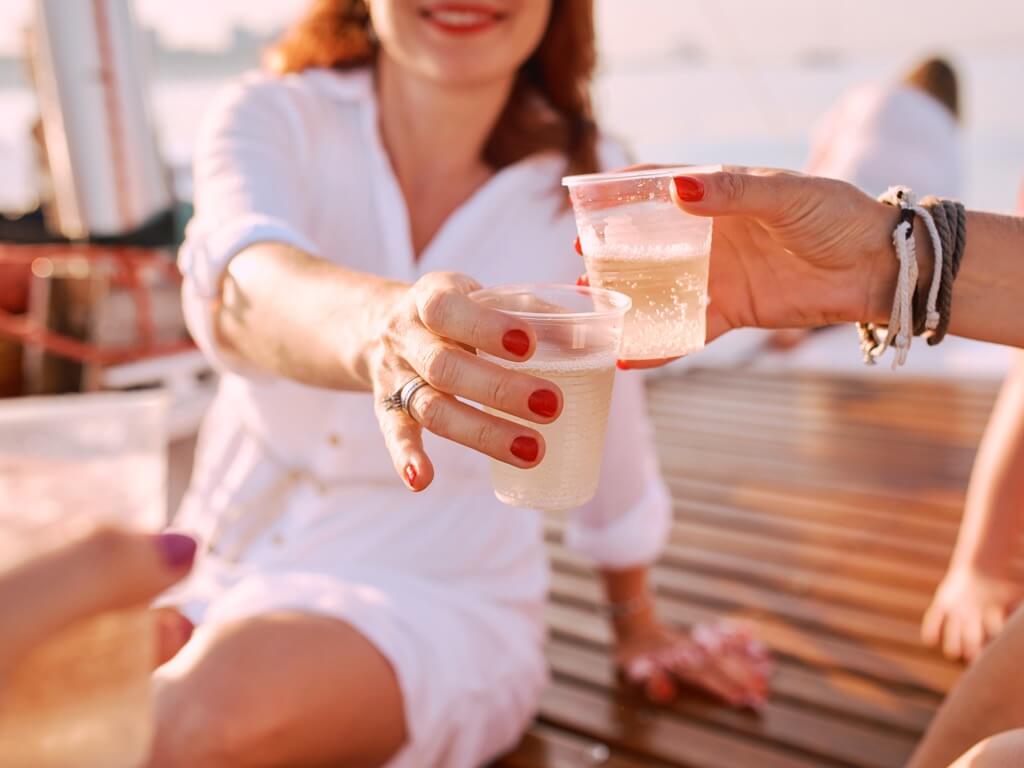
In the world of cruising, Norwegian Cruise Line (NCL) has carved out a niche with its commitment to sustainability. The introduction of eco-friendly cocktail programs is just one facet of this commitment. Yet, what has been the ripple effect among its clientele, and what can other cruise lines glean from NCL’s endeavors?
Impact and Response from NCL’s Loyal Customers
- Elevated Brand Loyalty: NCL’s shift toward sustainability has deepened brand loyalty among eco-conscious travelers. These individuals appreciate that their vacation choice aligns with their personal values, fostering a deeper emotional connection to the brand.
- Educative Experience: With bartenders keen to share the creation process of each sustainable cocktail, patrons are not just sipping a drink; they’re imbibing a story. This enriches their cruising experience, making it more memorable and educational.
- Surprising Delights: While guests might have had initial reservations, the unexpected popularity of drinks like the Croissant Mai Tai is a testament to NCL’s success in merging sustainability with quality. Such pleasant surprises enhance the guest experience and create positive word-of-mouth marketing.
- Empowered Decision Making: The digital cocktail menu, complete with photos and detailed ingredient descriptions, empowers patrons. Knowledge of the drink’s sustainability credentials can influence choices, making customers feel good about their selections.
Should Other Cruise Liners Follow Suit?
- Consumer Trends Lean Green: Current consumer behavior, especially among millennials and Gen Z, places a premium on sustainable and responsible practices. By integrating eco-friendly initiatives, cruise liners can appeal to this sizable and growing demographic.
- Economic Incentives: Beyond just the positive PR, there are tangible economic benefits. NCL’s model has shown that repurposing ingredients can lead to cost savings in procurement and waste disposal.
- Industry Leadership: Adopting such practices places a cruise line at the forefront of industry innovation. This leadership position can translate into increased bookings from eco-conscious travelers and potential partnerships with sustainability-focused brands and influencers.
- Global Appeal: As sustainability becomes a universal value, such initiatives resonate with a global audience. Cruise lines with a diverse clientele can especially benefit from practices that appeal to a worldwide customer base.
- Potential Challenges: While the allure of sustainable practices is strong, other liners must be prepared for the potential hurdles, from initial investment to operational challenges and resistance from traditional customer segments.
Norwegian Cruise Line (NCL) is not just pouring cocktails; they’re pouring innovation into every glass. Their trailblazing move to craft sustainable cocktails mirrors a broader trend towards environmental responsibility.
Connecting back to our initial premise, NCL’s sustainable cocktail initiative isn’t just a fleeting trend. It’s a testament to their commitment to eco-innovation, proving that sustainability and luxury can coalesce beautifully, one cocktail at a time. The challenge now lies in whether the rest of the cruise industry will raise their glass to this sustainable future.

